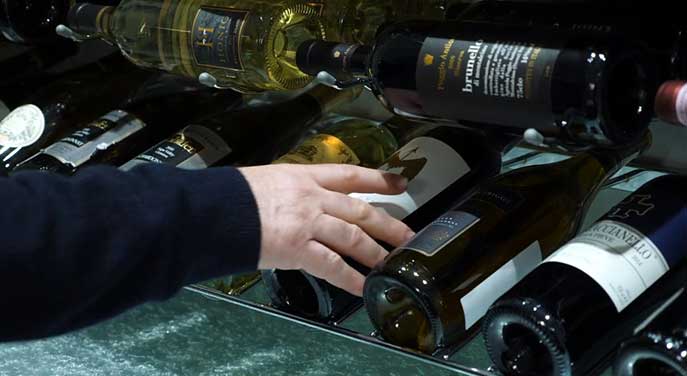 Many people assume wine is a passion for the rich. They picture Jay Gatsby toasting his Champagne coupe at a lavish party, or well-dressed couples stepping out of a limo at a winery tasting. Admission to the world of wine, it seems, comes at a price. For everyone else, there’s homebrew and boxed wine.
Many people assume wine is a passion for the rich. They picture Jay Gatsby toasting his Champagne coupe at a lavish party, or well-dressed couples stepping out of a limo at a winery tasting. Admission to the world of wine, it seems, comes at a price. For everyone else, there’s homebrew and boxed wine.
It’s true that some high-quality wines do cost a lot of money. One of the finest Burgundies, Domaine de la Romanée-Conti (DRC as it is known), commands thousands of dollars per bottle. But DRC is not the whole story. The celluloid ideal of fancy dinners and high price tags obscures the real world of wine behind it.
That world is not about money. It’s about deeply rooted connections to a place. It’s about family traditions built over generations. It’s about the simple pleasure of sharing a bottle with loved ones. And it is accessible to anyone keen to discover it.
I first came to understand wine in this way in the early 2000s, when, on summer visits to Germany, I would visit my grandmother in Baden – a German wine-growing region in the southwest. Her house was nestled in a sleepy village surrounded by rolling vineyards.
 Every afternoon at around five p.m., we would sit on her terrace and pop a piccolo of bubbly (or a fino sherry or rosé). We’d sip our glasses in the late afternoon sun, talking about life, history, and any other topic that came to mind.
Every afternoon at around five p.m., we would sit on her terrace and pop a piccolo of bubbly (or a fino sherry or rosé). We’d sip our glasses in the late afternoon sun, talking about life, history, and any other topic that came to mind.
Perhaps this sounds like another pastime for the well-off, but it’s not: the wine we were drinking cost about 2€ and was purchased from the garage of the local vintner up the street, whose family had been crushing grapes for about 300 years. With the same money, we could have bought a couple of packs of gum and sat there enjoying very different bubbles.
I tell this story to highlight that enjoying wine is not about spending a particular amount. In my view, it’s about embracing a particular ethos defined by three things.
First, an understanding that wine is a portal to a place, a history, and a culture. That bubbly tasted like quaint Baden, just as I’ve had Cabs that taste like ambitious Napa and Brunellos that taste like rustic Tuscany. A good wine will convey something about its birthplace – is it hot? Is it rocky? Is its winemaking culture focused on modern, fruity styles or traditional, rustic bottles? To receive this message does not require a sommelier education; it just requires that you pay attention.
Second, wine is an agricultural product. If you think wine is “snobby,” spend a day with a winemaker. Winemakers are farmers at heart – many will tell you that they make their wine in the vineyards, as the quality of the raw materials dictates the quality of the final product. Their mud-caked boots and purple fingernails betray how hard they work, and while they speak intelligently about wine, they do so without an ounce of pretension.
Third, wine is not just a drink; it is part of a good life. Many people overcomplicate wine, but, at its core, wine is a simple thing that is meant to be enjoyed and shared with others. Wine adds something to gatherings with friends and family. It decelerates the tempo of the experience, shifting us into relaxation mode – not only through the effects of alcohol (an incidental attribute, not a defining feature) but through the slow ritual of pouring, sipping, and savouring.
The wonderful thing about this ethos is that it is open to all; it’s an attitude that anyone can adopt, regardless of their bank balance. All you need is a decent bottle of wine (try one from Chile, Argentina, or South Africa – regions where quality wines with a sense of place can be found at sub-$20 prices) and, ideally, a couple of friends with whom to share it. Even better if you can find yourself a terrace that catches the afternoon sun.
Yule is COO of InVintory, an innovative wine collecting app based in Toronto. With an extensive background in wine, from working at a winery to managing private cellars, she aims to demystify the world of wine, helping people proceed through it with confidence and thereby unlock the pleasure that this ancient tradition can offer. For interview requests, click here.
The views, opinions and positions expressed by columnists and contributors are the authors’ alone. They do not inherently or expressly reflect the views, opinions and/or positions of our publication.
© Troy Media
Troy Media is an editorial content provider to media outlets and its own hosted community news outlets across Canada.


